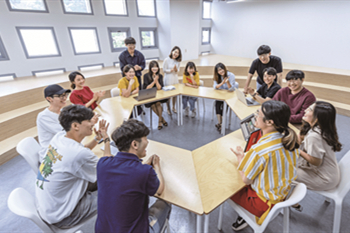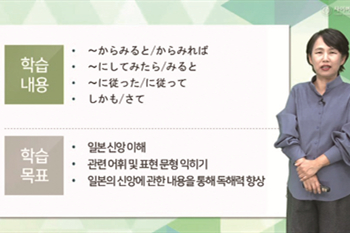Joe Hee-young, Park Ju-won, Chae Yoon-seo, Lee Su-min
For university students this semester, going to school has meant turning on their laptops or taking part in a Zoom conference. The way students study has changed dramatically due to the spread of COVID-19. Most universities in Seoul are holding classes online without any confirmed dates for the resumption of on-campus classes. Such an abrupt systematic change in education brought chaos at the start of the semester as unstable servers, technical difficulties, and unfamiliar aspects of internet lectures became obstacles to conquer. Along with stabilizing online classes, the challenge to increase the quality of these lectures became the next goal for universities. These phenomena underscore the importance of educational technology. Educational technology, also known as edu-tech, refers to using technology in an effective way to facilitate learning. This term has been used as an initiative that aims to bring students, teachers, and technical devices together. Ewha Voice interviewed the forerunners in this field comprising the members related to technological platforms, professors, and students respectively.
CLASSUM creates tools for efficient learning and teaching

CLASSUM is one of the leading education-focused communication tools which enables students and teachers to communicate more efficiently online. Choi Youjin, the COO, described the service as a tool that links students, professors, and teaching assistants and as a result, creates an interactive learning environment. To fulfill its purpose, CLASSUM performs three key functions. For students, it allows participants to freely and anonymously ask questions, and post questions without having to write titles on posts. In addition, students may click on “like,” “curious,” or “clap” buttons to offer a more convenient and comfortable atmosphere to respond to each other online.
“Thanks to these tools, 30 percent of the questions are solved through student discussions without the help of teachers,” Choi said. “This enables peer-learning and efficient learning in that students do not have to wait until their teachers respond.”
This system also benefits the teachers and teaching assistants since they do not have to repeatedly answer similar questions. At the same time, with the help of simplified response buttons, more immediate communication between teachers and students has become possible. The final advantage is its statistical report system; CLASSUM Insight. Analysis regarding the class and individual students is provided so that any institution using CLASSUM can receive reliable feedback on their classes.
Due to the pandemic, CLASSUM Premium, an upgraded version of the original system, has been provided for free to educators and educational institutions around the world. As many university students and professors had to turn to online lectures, this version includes a system to integrate Zoom through live video classes and extract PDF lecture files for users. The premium version also includes a “manager website” for the institutions to oversee their classes and students’ progress. CLASSUM Premium has been distributed for free since February and will be available until the end of this year’s spring semester.
“Even though a technologically advanced platform is constructed for online classes, what students and professors are struggling with is communication,” Choi noted. “For professors, they may feel like they are lecturing in front of a wall without any interaction from students. For students, a lack of quick feedback would result in an inefficient learning environment. Therefore, CLASSUM aims to eliminate such problems of communication and is focusing on forming an ‘active’ online environment that enhances engagement.”
Professor Yoon Ho-sook urges universities to benchmark systems of cyber universities
Professor Yoon Ho-sook of Cyber Hankuk University of Foreign Studies (CUFS) has long been attempting to achieve high quality classes utilizing remote communication systems. In 2019, she organized a live-online discussion between CUFS students of Japanese department and Japanese students from Tohoku Bunkyo University.
Yoon emphasized that universities should use experience from online semesters to invest in better infrastructure and attain a more diverse format of education. To do that, she added, schools should pay more attention to how classes of cyber universities have evolved over the past 20 years.
When asked about the different forms of online classes she has experienced, Yoon listed diverse programs that are used in the Department of Japanese in CUFS. In addition to the remote discussion session, learning Japanese through phone calls and collaborative remote classes with universities in Japan were being done.
“As students mostly watch course materials through smartphones, we are experimenting on breaking classes into shorter durations,” Yoon said.
Furthermore, Yoon pointed out how currently in most universities professors are in charge of the entire process of course preparation to filming.
“For an online course to achieve high quality, systematic support of tutors with either Master’s or Doctorate degrees and , professionals who specialize in content structuring and filming are required,” Yoon said.
Additionally, since cyber universities involve less on-campus interaction, courses undergo an assessment survey at least twice a semester and take in suggestions so that some courses change their format for students even in the middle of the semester.
When asked about the most memorable experiment with study materials, she named a project which Virtual Reality (VR) experience allowed students to indirectly experience Japanese culture.
Lastly, Yoon shared her hope that the implementation of cutting-edge technology in education will be as give the same educational effect as on-campus education.

What remote school students think about online classes
Kim Bo-young, a science-fiction writer who studied in the Korea National Open University (KNOU), has her own experience receiving remote education.
"The best part of studying at KNOU was that I could study anywhere anytime," Kim said. "I also think not having to be in unnecessary relationships with people helped me concentrate more on studying."
As Kim herself took a lot of time commuting to school when attending to offline schools, she wasted a lot of time including intervals between classes.
"I believe the quality of online classes depends more on the school's structure rather than on the differences between online and on campus. If other universities organize online classes successfully, people might go to school regardless of their age," Kim mentioned.
Shin Su-hyun, who studied adolescent education and social welfare at KNOU, described the test system they use. According to Shin, the school has different methods in holding their midterms and finals.
For midterms, professors either evaluate reports or hold attendance tests depending on the subject. Classes that require on-campus class attendance are usually arranged on public holidays, and exams are held on weekday nights. While midterm exams require attendance, final exams are administered for online lectures.
“I felt that KNOU considers working people since it sets classes and exams on Sundays and holidays,” Shin said. “It also provides alternative midterm for those who cannot attend long-term attendance classes or the weekday attendance exams.”
Shin added several advantages that the school provides for students.
“For those in their 50s and 60s who feel reluctant to attend online classes, tutors are assigned to each region,” Shin said. “It offers opportunities to participate in study clubs, which also motivated my studies.
Graduate of Minerva School explains the benefits of their education
Minerva School, founded in 2014, educates all their students online without even a campus. For four years, students move to seven countries that have Minerva School dormitories. In diverse countries, students materialize projects which involve cooperating with locals.
Kim Kang-san, a student who graduated from Minerva School, believe the strongest advantage of her school is its curriculum. Professors are sent to the Minerva Project, a private enterprise, to learn school curriculums. Also, the exams focus on whether the student has understood the content rather than to test memorization. The curriculum is designed to suit the online and analysis format, therefore enhancing the quality of lectures.
Minerva School also uses its own program for video calls. This program mainly shows the students who are participating in the debate on the screen rather than the professor.
“When having a debate, students use emojis to show whether they understood the content or not. This emoji makes it easier for the professor to regulate the debate process,” Kim added.

